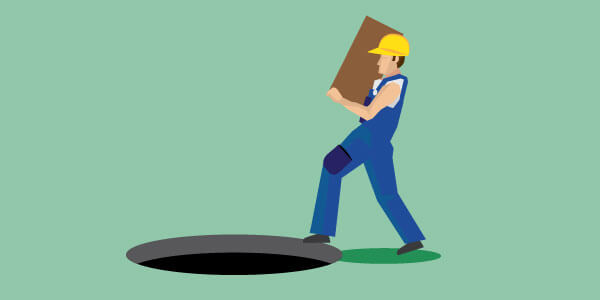The ultimate guide to employer liability insurance

The ultimate guide to employer liability insurance
If an employee or any third party takes legal action against you due to injuries, illnesses or even mortality occurring in your place of work or business, then employer liability insurance will help to protect you against the financial consequences of defending such a case and paying any compensation ordered as a result.
If you own a business that employs others, it is essential – and in most cases a legal requirement – that you should have insurance in place to compensate workers if the worst happens. If one of your employees is injured or contracts an illness as a result of their work, you should be in a position to pay any medical costs they incur and to compensate them for lost wages. Additionally, you may be liable to pay for any adaptations to their environment necessary as a result of workplace illness or injury, for example adapted vehicles or modifications to their homes. Having such insurance in place not only covers you but creates goodwill with your employees, who will appreciate the fact that they are valued and that you are showing concern for their futures.
There are essentially five main ways in which you may have to defend yourself against liability claims, and for which employer liability insurance can protect you, as detailed below. Bear in mind that the laws around liability can be extremely complex and that if you are faced with a liability claim, you should take the best available legal advice to deal with it. Again, the cost of this legal advice can be met by your employer liability insurance.
Negligence
If an employee is injured while working for you as a result of inadequate health and safety safeguards, you may be faced with legal action and a claim for compensatory damages. You may feel that your standard workplace insurance is enough to cover consequences of workplace accidents, for example it may well contain clauses providing sufficient compensation for medical expenses and time off work. However, there are areas that employer liability insurance covers that standard insurance doesn’t. For example, imagine a worker in your stockroom is hit by crates that have toppled over because they were not properly secured and sues you for negligence and the consequences of a severe spinal injury suffered because of this. In this instance employer liability insurance would cover you where your normal insurance policy would not.
Consequential injury
Any workplace injury can have far-reaching ramifications beyond the immediate impact on the directly injured party. Anybody who is affected by workplace injuries could have a case against those responsible for negligence. An example could be that the worker mentioned above, who has suffered a spinal injury, requires longterm care from their spouse that affects the spouse’s physical and/or mental health due to the stresses of providing it. The spouse may in that case be able to take out a case against you for consequential injuries resulting from the original breach.
Third-party actions
Sometimes a liability lawsuit may arise even when it appears that originally you as the employer are not going to be party to an action. For example, a worker could be using a piece of electrical equipment that malfunctions and gives them a severe electrical shock; the worker might then choose to sue the manufacturer of the equipment for damages arising. However, the manufacturer could then launch a subsequent lawsuit against you, claiming that either the equipment was not properly maintained or the employee was not properly trained to use it, and so you could be liable for any damages originally awarded against the manufacturer. Employer liability insurance could pay the damages owed.
Dual capacity
A dual capacity lawsuit arises when an employee takes action against their employer for damages arising from an incident involving the use of equipment manufactured by their employer. An example might be where an employee of a company manufacturing forklift trucks is injured by a malfunction of one of the company’s own trucks when they are using it in the company factory. The employer could be sued for manufacturing faulty equipment and for providing the same faulty equipment to the employee.
Loss of consortium
This type of lawsuit arises if a family member or members of an employee who has been injured, suffered illness, or died as a result of negligence on the part of the employer. The individuals concerned could take out a lawsuit requiring the employer to compensate them for the losses they have suffered. You might think that you are already covered by your insurance policies that provide for disability or death benefits for families, but the family may in fact be entitled to more compensation than your policies provide.
As you can see from the above, there are many different ways in which you can be exposed to financial liability if you do not have sufficient employer liability insurance in place. You can develop the strictest possible safety protocols and health and safety policies, but you can never be absolutely guaranteed that accidents will not occur in the workplace for which you may be found liable as an employer. To protect yourself and your business, it is essential that you have sufficient insurance in place. If you have taken out a workers’ compensation policy, you may well already have some employer liability insurance incorporated in that policy, but you should check carefully with your agent or insurance company whether this covers all eventualities and whether you are covered for a sufficient sum.
Hopefully all of the above will be helpful to you as you search for an insurance policy that will give you the peace of mind you need when you are dealing with the complexities of running your own business. Without being properly insured, you risk losing everything you have worked so hard for over a single incident.
Lucas Noah, with a Bachelor of Information Technology (BIT) degree, is a prolific writer known for his expertise in the tech world. Currently, he brings his wealth of knowledge to Creative Outrank LLC and Oceana Express LLC, enriching their websites with hi... Read more


